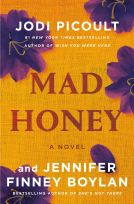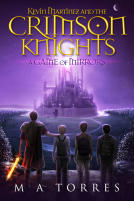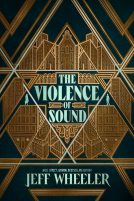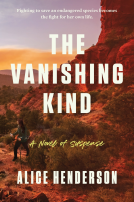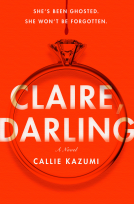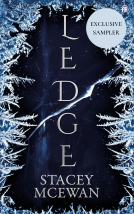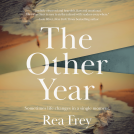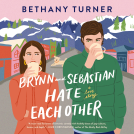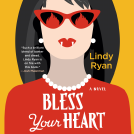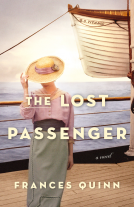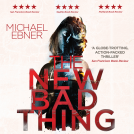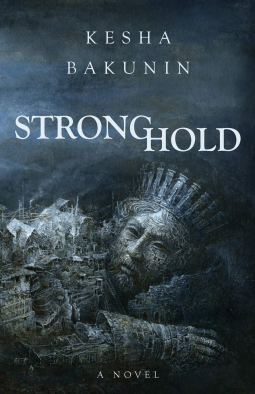
Stronghold
by Kesha Bakunin
This title was previously available on NetGalley and is now archived.
Send NetGalley books directly to your Kindle or Kindle app
1
To read on a Kindle or Kindle app, please add kindle@netgalley.com as an approved email address to receive files in your Amazon account. Click here for step-by-step instructions.
2
Also find your Kindle email address within your Amazon account, and enter it here.
Pub Date Jun 01 2021 | Archive Date Jul 05 2021
Talking about this book? Use #Stronghold #NetGalley. More hashtag tips!
Description
No one knows where it came from. Or why, for that matter. Maybe the Stronghold has always been there. Silent. Foreboding. Expectant. Generations came and went. Wars raged. Kingdoms rose and fell. But the Stronghold stood and observed the history as it was written before it in blood, fire, and tears. Not a single soul has ever made it inside the Stronghold. But some sure tried...
A parable of despotism and religious oppression, "Stronghold" was banned in its country of origin. It took Kesha Bakunin years to rewrite the book in English. With censorship on the rise in many parts of the world, it might be the last chance for him to share this cautionary tale about the most insidious kind of tyranny-one which is welcomed by its subjects as virtuous.
The secret of the Stronghold awaits its claimant. The question is who will have the courage to peek inside.
A Note From the Publisher
Since no local publisher was willing to represent Stronghold without excisions and adjustments, Kesha had to rewrite the book in English. You can get in touch with Kesha at keshabakunin@protonmail.com.
Advance Praise
"A powerful statement that lingers in the mind long after its initial reading, demanding multiple rereads to reveal all the gems layered within its complex tale. Readers of political parables and fiction that hold familiar settings and thought-provoking insights into the origins of repression and tyranny will find Stronghold a frightening read." - D. Donovan, Senior Reviewer, Midwest Book Review
"An epic and bold story of power and justice." - Joseph Haeger, Independent Book Review
"A sincere, urgent, and deeply personal plea to all its readers to remember that every society is just a step away from a tyranny." - Chris Vittriano, Vittriano Book Review
Marketing Plan
Bookstores and libraries contacted for stocking and reading opportunities
Book club selection
Goodreads giveaways
Social media outreach and ad-buys
Kirkus, Publishers Weekly reviews
Publications/newspapers/book bloggers contacted for reviews, interviews, and features
Guest on radio and podcast shows
Available Editions
| EDITION | Paperback |
| ISBN | 9781637529379 |
| PRICE | $23.99 (USD) |
Links
Featured Reviews
All is acceptable in love and war. The learned keepers stand opposite the tribal people. Genocide is one way to go. Oppression of dissenters is another. If you don’t agree with what’s happening in society, you can always start a cult. Or venture into the untouchable Stronghold, who knows what’s going on in there?
Stronghold presents many political and social issues in the form of a fantasy story set in a world with a rich history. But if you know the background of the book – the fact that it was banned in Kesha Bakunin’s country – you know that this fantasy world has a lot in common with our own. This is political scheming at its best: a parable of despotism and religious oppression.
History and future
The story is not told in a linear fashion and it takes a while for you to get the hang of the story. But once you do, you become more interested in the different timelines and characters. Like them, you want to know more about Those and the Stronghold that can bring even the mighty Iskaria to its knees. Once the worldbuilding is mostly done and the Provost enters the scene, the plot slowly begins to unfold.
A large cast of characters is introduced at the beginning of the book, and it doesn’t stop there. You think you know them, but you only know what they want you to know. At first, you have no idea what is going on, but as you revisit the same timeline over and over again, you find out what really happened.
I was not very charmed by the writing style and the fact that many parts were told as accounts of history rather than active events. The writing style is somewhat stiff and at first I was distracted by the word order and the use of adjectives and adverbs. It reads like a medieval chronicle. I think this was done for better immersion, but it does not enhance the reading experience.
This says nothing about how intense the meaning of the words can come across. The judgments and opinions are barely hidden in sentences like “If ordinary untruths felt to him like hollows in the smooth flow of words, now he mentally stared into the abyss” and “A cesspool of wickedness masquerading as a shrine or a virtue.”
After a hundred pages, you still don’t know much about the Stronghold or the endgame. I like that what you want to know is slowly introduced and not fully explained until the last hundred pages of the book. I wondered for a moment if the plot was added more as an afterthought, secondary to creating a parable, but I think it fits the story, I accept the plot.
Leadership and society
“In every society, real people are a minority, and the majority is made up of human-like animals.” In a successful society, people set rules for the animals, and in a failed society it is the other way around. Reading this makes you feel good, right? Fortunately for those involved, someone wrote a book with rules people should live by, called a way of life; the hint could not be clearer. Another quote: “Angry, violent, stupid, short-sighted, treacherous, people had only one redeeming quality: abundance.” These sentences do not illustrate the overall tone of the novel, only the moments that certain characters express their more honest feelings. You are either one of them or one of Those.
People live in a cage of their own making. They cannot escape their reality after being subjugated for too long. Rulers experiment with governing a society. Stronghold is Kesha Bakunin’s large sandbox that allows him to showcase political systems and the resulting societies throughout the ages, and the impact the strong hold of those in charge has on their subjects and the prosperity of the nation. Watching this unfold is what makes this book interesting. You analyze people’s actions. Do they really have a choice? Can they break free from those who oppress them?
Stronghold is more about political machinations and various leadership styles than about the characters, whom you only meet briefly because the book covers a large time span. Still, specific individuals are critical to the success of a system. If they don’t live long enough to establish a new norm, what they have worked hard for falls apart the moment they disappear.
Final thoughts
If I rate this book as a “regular” science fiction and fantasy book, without knowing the author’s background, I would give it three stars for the reading experience. I liked this book and would certainly recommend it to some of you, but I did not enjoy every page. Knowing the background brings an extra dimension to the story because you read it differently and analyze each action, society and person. I’ll stick to three stars because of my reading experience, but the parable-like depiction of the real world earns four to five stars for intellectual food for thought.
By the end of the book I wished this book was twice as long, or just went on indefinitely (just tell me about the next 7000 years). I guess it secretly grew on me. I wonder what would happen to the world, although I fear it would be a copy of what happened before: the inevitable demise of all that is good after a few generations, when the (inspirational) figureheads die and pass on their rule to the next in line. Nothing lasts forever, but sometimes it lasts too long.
Stronghold is a deeply political book with strong fantastical elements. There aren't many books like Stronghold. It very honestly presents many social problems -- that when you know the author's background and the book's history -- hit just a little closer to home.
The book is not all that accessible and not very easy to get into. It took me a while to actually start reading but if you push through it becomes worth it. Again, the story is interesting but the writing style needs improvement. The characters were interesting enough, and you never quite know more about the characters than what they were willing to let one. This character choice was a wonderful one on the author's part, as it added to the political aspect of the book. The book was more so about the world and the history than it was about the characters. As someone who enjoys books that are character-driven, it took me a while to get into the book. Though even then I never got truly immersed in it.
I believe that this book needs to exist if only because of the possible mirror it holds up to reality with its political aspects and commentary. And though it was not the optimal book for me, I'm glad I read it and I do know there are people who will infinitely enjoy it.
 Angela M, Reviewer
Angela M, Reviewer
I appreciate the effort the author went through to learn a new language so he could translate his own work and the translation is quite good. The only issue I had with the translation was the mix of very high-brow, almost academic words used mixed with slang. Maybe because of the translation, I was not able to connect to the characters. This was very much a "tell, not show" style of writing. I did enjoy the story and the themes even though the delivery of the themes was a bit heavy-handed. For me, this book falls into the category of I'm glad I read it but I won't reread it.
I would first like to thank NetGalley and Atmosphere Press for sending me a copy to review. Please note that this in no way affects my opinions on the book.
I will admit that going into this I was a bit trepidatious as the summary only gives you a vague and broad idea as to what the plot entails, and the reviews I had seen so far categorized this as a hard read. Needless to say, I am overjoyed by the fact that my worries were for naught as I immensely enjoyed this book, and here are all the reasons why.
Content Warnings: child abandonment, mentions of rape and molestation, torture
Writing:
While I can understand why many people would struggle with the writing of this book, I thought that it was extremely well written, especially given the fact that this was re-written from the author's first language. The vocabulary can be rather wordy or academic, but I find that that only added to my reading experience.
What mainly worked for me is the fact that this is not written like a typical book, it is instead a chronicle of specific times and people within this world. Again, this could be a leading factor as to why many people may have a hard time reading it as this is more of a history than a story. For me, as someone who studied history, I found this story to be rather enthralling.
Another crucial thing to know about the format of the books is that, despite being a chronicle, the timeline is non-linear. As the story bounces around, it did take a bit of getting used to in the beginning when I was not used to the places or characters yet. You also do not get a static POV as the story is told through several lenses.
In the end, the non-linear timeline paid off though as the way information was revealed and how the plot lines connected were immaculate. All the events and character storylines were intricately woven together extremely well.
Plot:
As previously stated, this book is a chronicle that focuses on specific people during specific times in a place known as the Known World and is centered around something that is called the Stronghold. As you can see, this is a very ambitious plot as the plot in and of itself is incredibly vague. While everything and everyone is connected to each other and connected to the Stronghold in some sense, it is a bit lose considering how much goes on in this.
Throughout the book, you take a deep dive into the lives and history of these people over time. This captured me from page one with a story that starts with a bang and grips you all the way to the end. The way the plot unravels keeps you going as the connections between people in the current and past timelines are revealed spectacularly. This sense of intrigue more than makes up for the vague plot.
Where the plot falls off a bit for me though would be the very end of the book. We spend the majority of 500 pages in the dark as to who the people referred to as Those are and what the Stronghold is. While it did take me completely off guard and I had to re-evaluate everything I just read, I don't think I quite liked what the answer to those questions was.
There were also some minor plot aspects and stories that were mentioned offhand that also bothered me a bit. One aspect, for example, is that I would have liked more information about Queen Ursula. She was described as being a prominent figure in history, but we don't really get to know much about her. I understand that there is only so much history that can be covered in this, but considering how important she was to the people, it would have been nice to get at least something from her timeline.
I also would have liked to see the characters through to their end. Now, I know that cannot possibly be done in one book and the likelihood of there being a continuation of the story is improbable, but I felt like the book ended abruptly just as everything was starting to come to a head. The entire story, in essence, was a build-up for what was going to happen inevitably in the future.
World-Building:
Not only do we get a map of the Known World, but we also have a family tree of the line of rulers which is extremely convenient. It was a bit overwhelming at first getting to know the world, but there are only a handful of places that are covered so the world isn't overly expansive to the point where there is too much to follow.
The structural system of the world seems to be divided into tribes or kingdom/queendoms depending on the area. While the history of the regions was thoroughly explained throughout the book, I wish that the political organizations were more clear. It was not until halfway through the book that you get a full background on the previous rulers which helped establish how the land was governed.
There are hints to some form of possible magic throughout the book, but besides the fictional setting, it is hard to classify this as a fantasy book.
Themes:
There is a lot of commentaries that can be had from this book. It is stated in the afterward that this is a piece that reflects the secular autocracy and religious extremism of the author's homeland. While I may not be able to comment on these reflections, here are some of the discussions I took away from the book.
The religious commentary was more or less blatantly obvious in the book. Religion is a big factor in the lives of the people of the Known World, and it is interesting to see the reality of their religion as being not what they think it is. There was also a point made, I think, about forced conversion as it talked about people who forced their ideas on people whose land they entered without invitation.
One interesting discussion that came up was when the character Deesrai mentioned to her sister that their lives were always going to end in tragedy, so it was better to be the villain than to be the victim. I think that this is a very interesting subject to debate.
Characters:
As I said previously, there is no static POV as we follow a rather large myriad of characters. While some may say this could be a downfall as it prevents you from connecting with the characters, I thought that all the characters were fleshed out enough (considering the length of the book), and were interesting to read about.
For example, we had conjoined twins who were rulers known as the Sovereign. I've never read anything that included conjoined twins, and while I don't know what that would entail biologically, I thought that it brought something different to the table.
The only thing I would say didn't fully work was the fact that because the POVs were so inconsistent, it would be a while before you found yourself reading about a particular character again. Due to this, I would have to pause for a minute to remember where their story last left off.
Concluding Thoughts:
I thought that this was a meticulously and wonderfully crafted novel that is perfect for fans looking for something more on the side of The Silmarillion. If you like very low fantasy settings, and also happen to like historical accounts, then this may be perfect for you. If you go into this expecting something extremely plot-driven and full of action, then you might want to adjust your expectations or stay away entirely.
Overall though, I would give this a solid 4.5 out of 5.
 Daphne M, Educator
Daphne M, Educator
This should act as more than myth. It should be required in all Government classes, at all levels . It is forbidding. It foretell the folly of following too close and believing all you are told. It is the high cost of letting others move you without doubt. We should all be clever but not so we lose the edge. It is scary in its reality. And profound in its message.
Thank you to the publishers, author and NetGalley for the free copy of this book.
I really wish I had been able to sit down and read this all at once, or at the very least within a couple days. It is not the book to spread out over a period of time. It was definitely interesting, and when I was able to sit down for a good chunk of time and read it I was drawn in completely. However, I'm not really a fan of when story lines jump around constantly and change perspectives all of the time. Its a very dense novel with a lot of thought provoking moments, but make sure you are able to really devote the time to get into it!
Readers who liked this book also liked:
Jodi Picoult; Jennifer Finney Boylan
General Fiction (Adult), Literary Fiction, Women's Fiction
